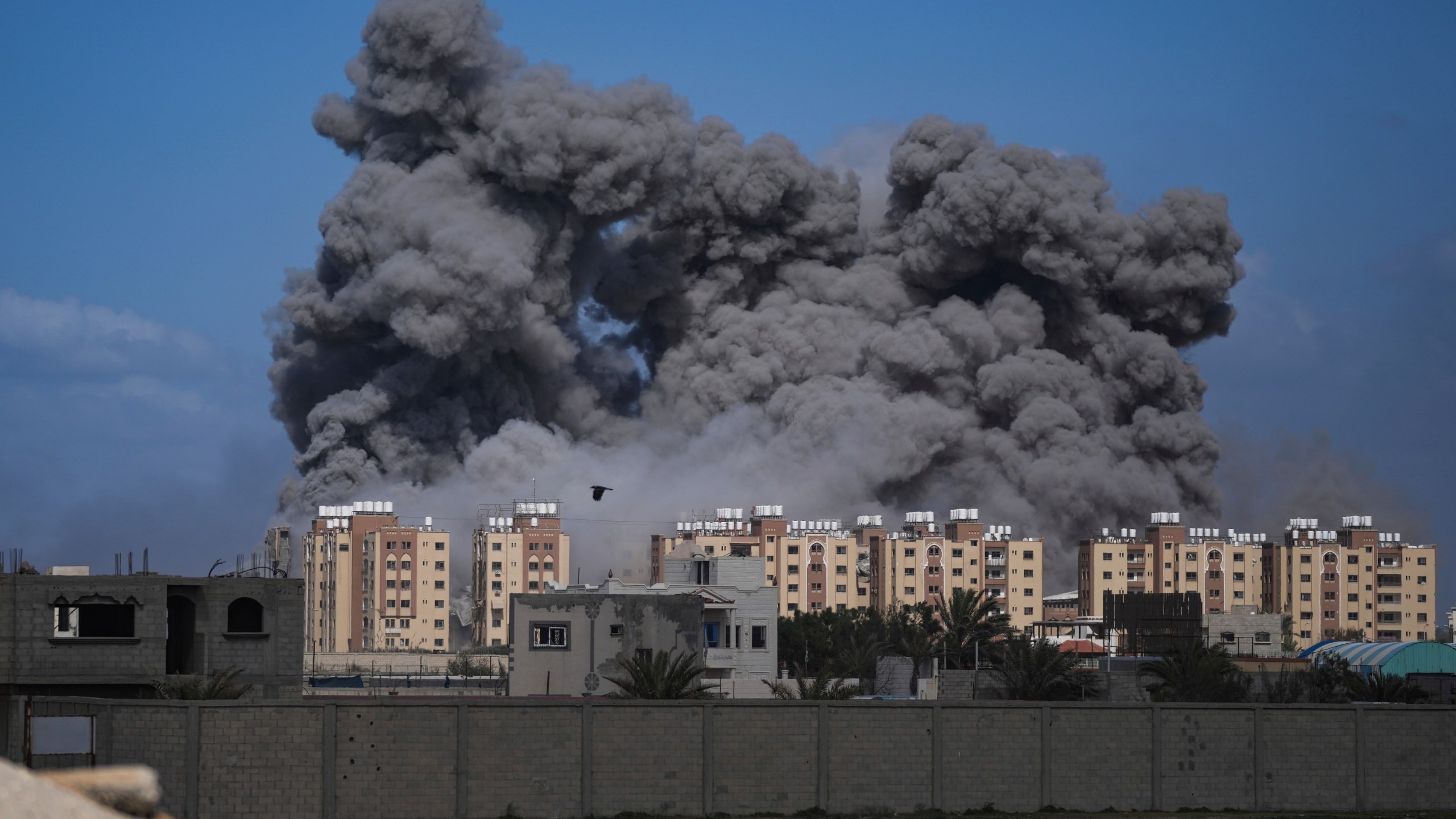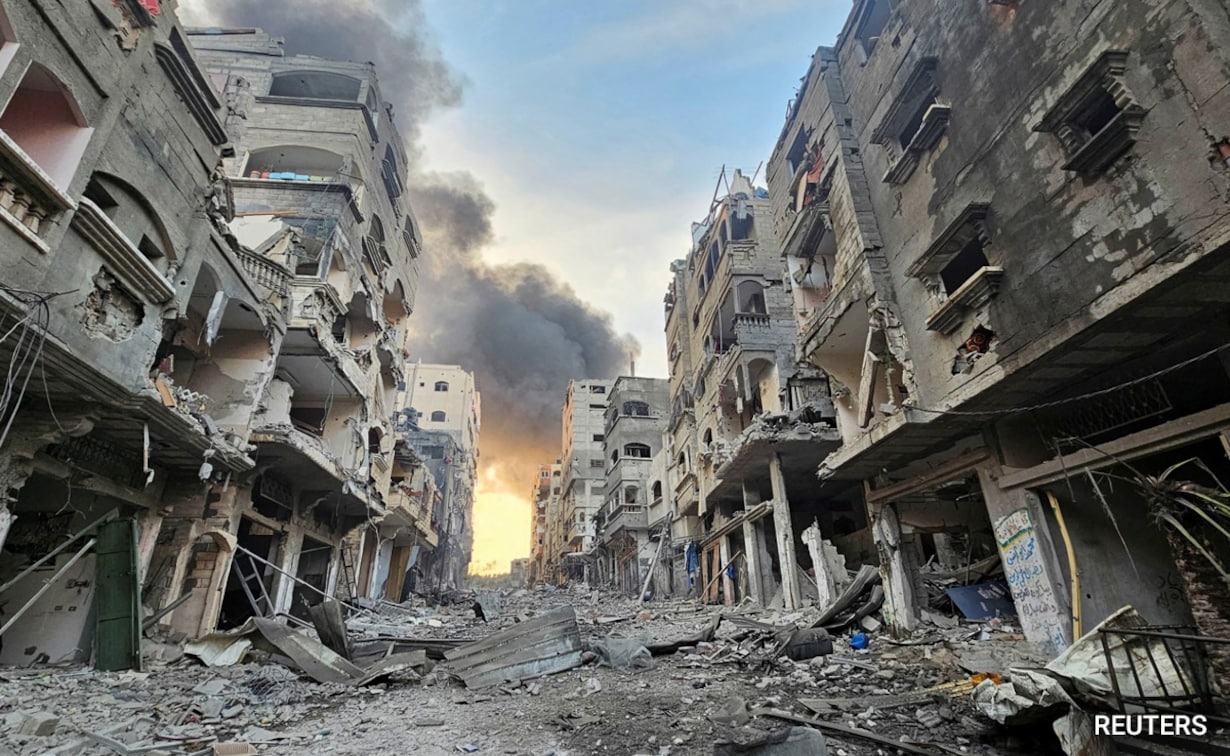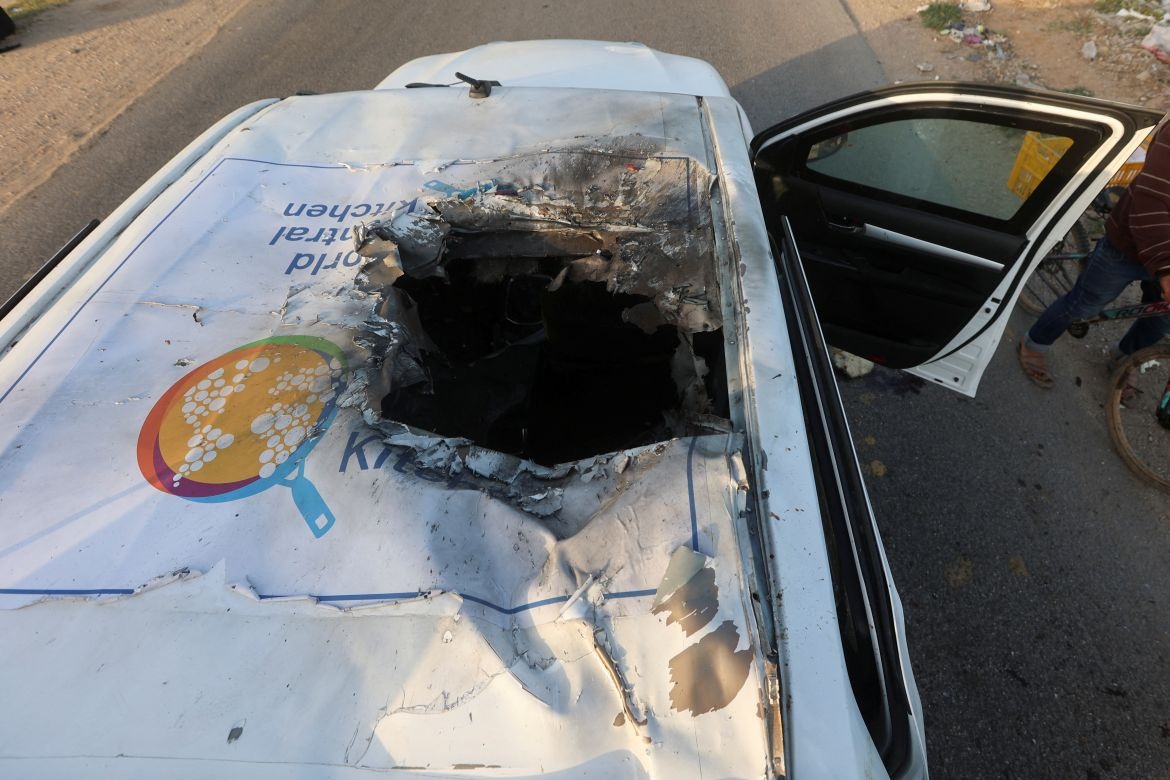In the fallout of Israel’s airstrike that resulted in the deaths of seven members of a U.S.-based aid group in Gaza, both global outrage and an apology from the Israeli prime minister followed suit. Despite this, the country’s top military official pledged a transparent and thorough investigation into the incident.
Israel Defense Forces (IDF) Chief of Staff, Lt. Gen. Herzi Halevi, acknowledged the tragic incident involving the World Central Kitchen workers, promising an examination by an “independent body.” The pledge emphasized the necessity of accountability, with Lt. Gen. Halevi asserting, “It shouldn’t have happened.”
However, skepticism arises regarding the efficacy of internal investigations conducted by Israeli authorities, particularly when military personnel are involved.

Israel says its strike that killed aid workers was a mistake (Credits: CBS 17)
Critics have voiced doubts about the independence of Israeli military investigations, given their ties to the army. This skepticism is compounded by a broader pattern wherein Israel frequently promises investigations into civilian casualties but seldom yields satisfactory outcomes.
The recent incident involving World Central Kitchen workers presents a major departure from this norm, with Israeli military officials responding to international pressure by announcing the dismissal of two senior officers and reprimanding three others. The severity of the action underscores the gravity of the mistake made by Israeli forces.
Questions Linger Over Systemic Failures
Despite pledges to learn from such incidents, there are lingering doubts about the military’s ability to address systemic failures adequately. World Central Kitchen has echoed these concerns, emphasizing the need for comprehensive reform to prevent similar tragedies in the future.

Israel-Hamas war (Credits: NDTV)
In a conflict marked by complexity and tragedy, Israel’s approach to investigating civilian casualties is under intense scrutiny. Despite the devastation of war, ensuring accountability for civilian deaths remains a critical challenge.
Previous incidents, such as the death of journalist Shireen abu Akleh, underscore the challenges in holding Israeli forces accountable for civilian deaths. Despite international pressure and acknowledgment of wrongdoing, accountability measures have often fallen short.
Limited Impact of Previous Investigations
Past investigations into civilian deaths have yielded minimal disciplinary action, raising questions about the effectiveness of internal accountability mechanisms within the Israeli military. Calls for broader reforms to rules of engagement and the use of force persist but have yet to be adequately addressed.
In light of the recent tragedy involving World Central Kitchen workers, calls for an independent investigation have intensified. The aid organization, backed by international support, insists on an impartial inquiry to ensure transparency and accountability.
The international community, including key allies of Israel, has condemned the incident and emphasized the need for meaningful accountability measures. President Biden’s remarks underscore the gravity of the situation, signaling a potential reevaluation of U.S. support for Israel in the absence of tangible reforms.
As Israel grapples with the repercussions of the airstrike and mounting pressure for accountability, the path forward remains uncertain. While promises of investigation offer a glimmer of hope, the true test lies in the extent to which meaningful reforms are implemented to prevent future tragedies.























